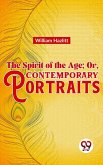In "Jemima Placid; or, The Advantage of Good-Nature," Mary Ann Kilner crafts a charming narrative that explores the virtues of kindness and amiability through the lens of her titular character, Jemima. Written in the late 18th century, a time marked by burgeoning sentiments of morality and didactic literature, Kilner's prose exhibits an engaging simplicity while embedding moral lessons central to the era's literary discourse. Through a series of adventures and encounters, Jemima's good-natured disposition serves not only as the linchpin of her relationships but also as a beacon of hope and guidance amid the complexities of social interactions, reflecting a broader cultural message about the importance of character and benevolence in societal harmony. Mary Ann Kilner, a notable figure of her time, was profoundly influenced by the Enlightenment ideals that permeated her environment, particularly the value placed on reason, ethics, and human relationships. Writing from a perspective that encouraged both reflection and moral engagement, Kilner aimed to provide readers with a model of virtuous conduct. Her experience as an educator and her insightful understanding of human nature undoubtedly informed her characterizations and plot development, making Jemima's journey both relatable and instructive. Readers seeking both entertainment and ethical contemplation will find "Jemima Placid" a delightful addition to their literary repertoire. With its rich thematic layers and approachable style, the book serves as a timeless reminder of how good nature and kindness can positively transform lives and communities. Recommended for those interested in early feminist literature, moral tales, or the societal values of the 18th century, Kilner's work invites us to reflect on our own dispositions in a modern context.
Dieser Download kann aus rechtlichen Gründen nur mit Rechnungsadresse in A, B, BG, CY, CZ, D, DK, EW, E, FIN, F, GR, H, IRL, I, LT, L, LR, M, NL, PL, P, R, S, SLO, SK ausgeliefert werden.









